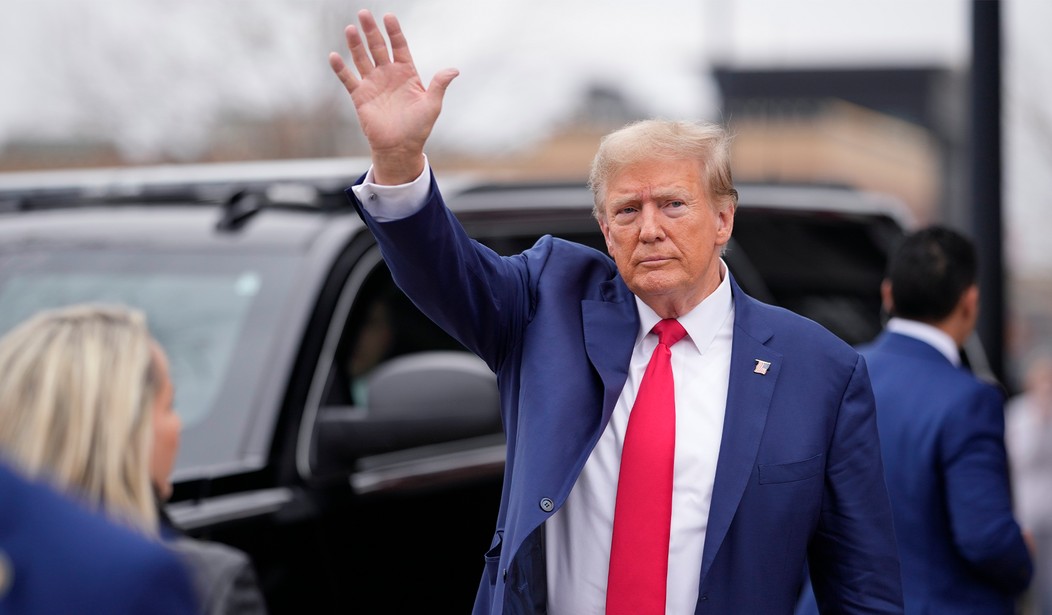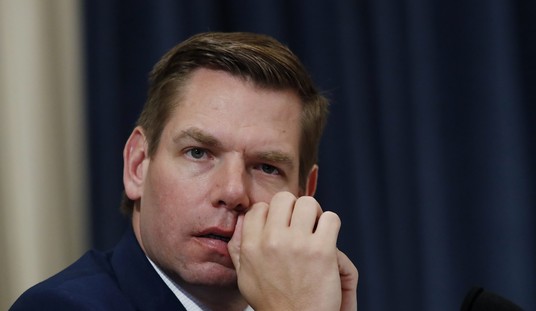Earlier in December at a campaign event, 2024 Republican presidential candidate and former President Donald Trump weighed in on the national debate over policing in America. As an ardent supporter of law enforcement, the former president has often spoken in defense of the police as the left has waged a war of rhetoric against them.
The policing issue became even more prevalent during the COVID-19 pandemic and the George Floyd protests. This time period was marked by calls for defunding the police coming from the left. Others were not necessarily on board with the extreme anti-police rhetoric but highlighted the need for reform.
During a speech in Durham, New Hampshire, Trump addressed the problem of progressive prosecutors seeking to protect criminals over citizens and the left’s crusade against law enforcement. He pledged to “indemnify all police officers.”
“I'm going to indemnify through the federal government, all police officers and law enforcement officials throughout the United States from being destroyed by the radical left for taking strong actions against crime.”
Thoughts?
— Jeff Charles, An Awful Pundit🏴 (@jeffcharlesjr) December 30, 2023
"I am also going to indemnify all police officers...I'm going to indemnify through the federal government, all police officers and law enforcement officials throughout the United States from being destroyed by the radical left for taking strong actions against crime." pic.twitter.com/AEVfO1107g
At first glance, Trump’s declaration might seem to be a necessary way to ensure that law enforcement is empowered to do their jobs and curb crime. But a deeper look reveals that this proposition is not only unnecessary, it could create even more problems.
To start with, Trump’s contention that law enforcement officials are being “destroyed” for “taking strong actions against crime” is a significant overstatement. He appears to be referring to the notion that officers are at severe risk of losing their pensions, homes, or families because of litigation that occurs when an officer is accused of violating a citizen’s rights.
However, the reality is that the vast majority of police officers are already indemnified by the cities and counties that employ them. According to a study conducted in 2014, “governments paid approximately 99.98% of the dollars that plaintiffs recovered in lawsuits alleging civil rights violations by law enforcement.”
Law enforcement officers in my study never satisfied a punitive damages award entered against them and almost never contributed anything to settlements or judgments—even when indemnification was prohibited by law or policy, and even when officers were disciplined, terminated, or prosecuted for their conduct. After describing my findings, this Article considers the implications of widespread indemnification for qualified immunity, municipal liability, and punitive damages doctrines; civil rights litigation practice; and the deterrence and compensation goals of 42 U.S.C. § 1983.
These numbers suggest that any federal move to indemnify police officers would be far more symbolic than substantive given that officers already enjoy protection from personal financial liability.
Secondly, officers also enjoy qualified immunity, which is a legal doctrine that provides significant protection to police officers. It shields them from lawsuits unless a court determines that they committed a clear and established constitutional violation. In fact, it provides so much protection that it is extremely difficult to hold officers accountable for misconduct and has led to situations in which legitimate claims of abuse and excessive force are summarily dismissed.
Using the federal government to issue some type of blanket immunity on members of law enforcement could also create more of a problem when it comes to the bad apples that exist on police forces. When an officer actually does violate someone’s rights, it should not be excessively difficult to hold them accountable. More indemnity would send a dangerous message about the state’s commitment to protecting the rights of its citizens. For corrupt officers, it would indicate that they will be even less likely to face consequences when they engage in wrongdoing, which would only embolden misconduct and further diminish the already limited avenues for redress for victims.
Would we want indemnity for the officers who fired flash-bang grenades at J6 protesters who were demonstrating peacefully? Should the officer who murdered Ashli Babbit have gotten immunity? What about the FBI agents who tried to frame Catholics as terrorists and rounded up pro-life protesters? Should we also indemnify the officers who viciously arrested people for violating COVID restrictions?
The bottom line is that Trump’s stance against crime is warranted, especially his insistence on going after progressive prosecutors who are more concerned with protecting criminals than citizens. But giving even more immunity from accountability is not the answer to cracking down on crime. If the government’s role is to protect our rights, it must protect them against anyone seeking to violate them, whether it be a private citizen or a government official.













